The ‘Alpha’ Restaurant
There are now almost 110,000 reviews published on HappyCow.
This is the earliest vegetarian restaurant ‘review’ which we have yet found – it was published on Feb. 7, 1880 – a Saturday.
The ‘Alpha’ opened in London, UK in 1879 & promoted itself as London’s “First Food Reform Restaurant”.
The ‘Alpha’ was the project of a ‘highly controversial’ couple – Thomas Low Nichols (1815–1901) & Mary Gove Nichols (1810 – 1884) .
More about them & about The ‘Alpha’ – here.
Sections in brown are my additional notes / cross references – I love this material / these people – I fully agree with Mae West‘s wise words – “Too much of a good thing can be wonderful!”
. . . . . . . . . . . . . . . . . . . . . . . . . . . . . . . . . . . . . . . . . . . . . . .
Explaining the Prices – British Pre-Decimal Currency
The Roman words libra, solidus, and denarius (lsd – or – £sd) referred to pounds, shillings and pence.
So – an example from the article – 6l. 10s. 10d. = 6 pounds & 10 shillings & 10 pence.
. . . . . . . . . . . . . . . . . . . . . . . . . . . . . . . . . . . . . . . . . . . . . . .
This original issue of – The Graphic – Feb. 7, 1880 is being cared for in our Ernest Bell Library
This review article ‘VEGETARIAN DINNERS’ has been transcribed by our friend Yvonne Martin-Portugues Santacreu.
VEGETARIAN DINNERS
Ernest Hart has practically proved that we spend a deal too much on dining. He lately gave a dinner of eight courses at a penny per head per course. But we doubt whether a penny ice, a penny mince-pie, and a pennyworth of curried eggs or scalloped lobster would be healthy fare day after day. His dinner reminds us somewhat of the old Paris restaurants of our boyhood, where close by the Palais Royal, in some narrow street now Haussmannised, you could dine (?) for 6 1/2d., getting about a vinegar cruet-full of wine and for “sweets” a couple of tiny stewed apricots and for dessert three raisins and an almond. It was pretty and neatly served; but after it was gone you felt irresistibly moved to call, like Oliver Twist, for more.
This is a nice ‘lead in’ – Ernest Hart was married to Alice Marion Rowland, (Mrs. Ernest Hart) the sister of social reformer Henrietta Barnett. Henrietta Barnett was married to Canon Samuel Barnett.
All were very active social reformers / humanitarian activists.
A well researched article on Henrietta Barnett & Samuel Barnett – here.
Canon Barnett opposed cruel animal-slaughtering practice and became an active member of the Humanitarian League with Henry S. Salt & Ernest Bell, when it was founded in 1891.
The Humanitarian League: What It Is, and What It Is Not – ……Among those who have lent their names to the Committees of Special Departments, or taken part in meetings held by the Humanitarian League, are Rev. Canon Barnett………
The Review Section Starts From Here
The vegetarian dinner at the Alpha Food Reform Restaurant, 429, Oxford Street, certainly does not fail in quantity. We defy any one, even in this hungry weather, to get through more than a dish of “green peas, potatoes, and sauce” (a little like green pease pudding, but more toothsome, owing to a dash of vinegar and oil) followed by one of “savoury pie.” This latter mess (we use the word in the honourable old English sense) is a splendid thing for cold weather; it is sent up steaming hot, and tastes like Cornish fish-pasty, though we could identify none of its constituents, except haricot beans. Fish it could not have contained; though Professor Newman now allows weaker brethren (under the name of Associates) to compromise matters by including fish in their dietary. Equally satisfying, and as good an imitation of flesh meat as the savoury pie was of fish, appeared to us the “Carne pot and sauce.” The soup costs 4d. the pies 5d. or 6d., and if stewed prunes (excellent–they are as hard to stew properly as potatoes are to boil) are added for a finish, the dinner will cost a little more than Mr. Hart’s, but we fancy in point of nutriment it will be about ten times as valuable. The hard thing is to get vegetarian cookery at home. Cooks are the most Conservative of mortals, except perhaps those wives who take a part in housekeeping. Then, undoubtedly, there are difficulties. The whole-meal bread, by which vegetarians justly set such store, and which, well made, is so delicious, is very puzzling even to cooks accustomed to bake at home. The vegetarian magazines are full of recipes for ensuring its being light, or rather not too leaden. Again, in vegetarian cookery the ozmazome of the meat (that flavour which pleased the old gods so well that they seldom demanded anything more solid) must be supplied by giving expression to the different dishes. One gets this at Oxford Street, but home attempts usually result in a series of variously coloured parritches, all tasting pretty much alike.
At the UK Vegetarian Society’s 24th AGM, on October 18, 1871, Francis W. Newman proposed radical changes.
What Newman proposed was firstly to allow the Society to enrol associate members, based on four categories of pledges:
1. to feed on the fruits of the earth only [pure vegetarian/dietary vegan]
2. to avoid the flesh of animals killed for food [ovo-lacto-vegetarian]
3. to avoid all flesh of land animals and birds [pescetarian/piscerian – fish eater]
4. to avoid flesh-meat so far as circumstances permit. [flexitarian or meat-reducer] – go deeper into this topic here.
Newman’s proposals were voted down!
~ However, there were still enough Bible Christians in prominent positions in the Society to block these proposals. Prof. Newman managed to get an agreement for simple ‘associate membership’, but that was all. Even in that he was proved right, there were soon twice as many associates as full members, and the Society’s income more than doubled. ~ – more – here.
However, to those who have to trust for dinner to a second-rate dining-room, we recommend a visit to the Alpha. What they get will be far wholesommer, far more nutritious, than the flabby, sodden roast mutton, swimming in fat, or the hard sinewy lump of beef, even though it be cooked “without extra charge on a silver grill.” There is a tolerable amount of variety in the soups haricots and puddings of several kinds, and those who wish to dally with asceticism, and yet not lose flesh and nerve-force, may try once a week a dinner on “Anglo-Scotch parritch and milk,” which is the very cheapest and best threepennyworth we ever tasted.
Of course strong drinks are interdicted; though it is noteworthy that monks, when they cut off flesh-meat, find a little thin wine all the more necessary. Perhaps the vinegar and spices do the same work for the vegetarian. Anyhow, for three halfpence he can have a glass of excellent milk; the only costly item on the list (for a good salad at 4d. cannot be called dear) being “fruit and bread,” for which (even if it is only an apple) he will have to pay 7d. This struck us as extraordinary last autumn, when sweet sound Jersey grapes were selling in the streets for 4d. and 6d. a pound.
But the Alpha is in its infancy; by and bye there will be, we hope, in other parts of London a Beta and a Gamma, and ever so many more letters, at which, perhaps, will be developed more enterprise, accompanied with a larger number of waiters. At the Alpha we only found one, who must have envied Briareus his complement of arms. However, perhaps it is part of the system to help digestion and correct our insular tendency to hurry through our food by giving ample time between the courses.
There was time, too, to watch one’s fellow-feeders, numbering some thirty, in the front room (there were fifty more, we were told, in the long room behind). They were of various types–from the ordinary shopman and artisan to the lean, anxious-looking philosopher with portentously high forehead, and the chubby-faced spectacled young student, with a very red nose, whose dinner consisted of parritch, followed by salad (eaten on principle, because the celery contains so much brain-making stuff).
But more interesting than the guests were the wall-placards. It is hard to be told at our time of life that “beef and bacon are delusions.” But here you have the figures before you (and they are, of course, stubborn things). “O the roast beef of old England” is the heading of a table which shows that the amount of nutriment which, if supplied in the form of beef, costs 6l. 10s. 10d., and which in fish would cost 2l. 3s. 3d., may be had in the shape of bread for 18s., of wheat flour for 16s., of oatmeal for 14s., and of split peas for 13s. If only a man could live always on pease-pudding, he might far outdo Professor Nichol‘s trick of “Living on Sixpence a Day.” Of course there are contras to be taken into account; for instance, an old Cambridge scientist, when a worrying would-be scientific lady blandly asked: “Dear doctor, what is the cause of the wind?” replied in a hoarse whisper, “Pea-soup, madam;” and probably pease-pudding is open to the same charge. Still it is certain we do eat a deal too much flesh meat; and, if the vegetarians can persuade us to lessen the quantity, they will be public benefactors. One of them, Mr. Couchman, who last year dined nearly two hundred children in Newcastle at a total cost of 16s. 2 ½d., publishes a tract, in which he shows “How to marry and live well on a shilling a day.” He winds up by saying, “The true girl is to be sought for;” she is to be had (he confidently affirms); but if she is guaranteed both to be content with the weekly dietary that he lays down and also to set herself steadfastly against “furs, jewellery, nonsensical headgear, wasteful furbelows, and airs and mincing ways,” we submit that she is a rarissima avis. The man, on his part, must “throw away that cigar, shun strong drinks, and scorn a poor, fashionable society that thinks itself rich, and vainly tries to think itself happy.”
“Would you have your children become more turbulent, quarrelsome, fierce, or revengeful; hating and hateful; more like beasts of prey? Then give them flesh. But would you not rather render them more lamb-like and of heavenly disposition? – then feed them on vegetable diet.” – William Couchman
Another – apologies for the eggs & milk –
~ Mr. William Couchman related at a meeting in 1875 that after a terrible accident, by which his head was severely damaged and his scalp nearly removed, and when he had recovered consciousness, he, being a vegetarian, refused to eat the mutton chops and drink the brandy and light wine prescribed, and kept to his usual fare of brown bread, stewed apples, haricot beans, rice, and vegetables, adding eggs beaten up in milk. The doctor declined responsibility for the consecpiences. His blood was pure, and the wound, which was extremely serious, healed wonderfully. The doctor admitted that unless he had been in a condition much better than that of most men, the accident would have been fatal. ~ – here.
This, however, is strong meat for philosophers, who being flesh abstainers, claim to have their harmless hobbies by way of compensation. But thousands who would never think of taking Mr. Couchman’s advice, who would wisely shrink from adding yet more to the vast sum of human poverty, may yet get great benefit both to health and pocket by dining pretty frequently at the Alpha. One dinner will convince them that flesh-meat is no more essential to keeping up animal heat than is strong drink. Savoury-pie is as warming as ox-tail soup; and there is much more “stay” in it. In the same way a parritch breakfast is every way better than one of tea or coffee, perhaps with toast, which means bread out of which a certain amount of the nutritive elements has been subtracted; and those who tire of oatmeal may try hominy or a mixture of lentils and corn-flour. No one who thus begins the day need have any fear of being (as St. Jerome said of Pelagius) pultibus praegravatus Scoticis. We cannot hold with Professor Newman that “flesh-eating is the food of barbarism,” but we are sure that almost every one eats too much animal food, and that it is a fallacy to urge that a vegetable feeder must have a stomach of cast-iron. All that is needed to digestion is to make food palateable. Hashed mutton and other family dinners are often the very reverse of this, and the consequences are seen in a craving for stimulants which is never felt by the vegetarian. One result we hope will follow from the vegetarian movement–an increased consumption of fruit, leading to such an utilisation of roadsides and railway-cuttings as is the rule in so many parts of the Continent.
One word of advice; philosophers must condescend to human weakness, perhaps, allowing table-cloths, though we prefer the bare, marble-topped tables of the Alpha to the more than suspicious table-cloths of many dining-rooms. This is an advertising age, and we are sure the Alpha is not sufficiently known; when we inquired we were told “the advertisement had just runout.” Nor is the public awake to the fact that there is also a partially vegetarian restaurant at the Ludgate Circus. Moreover, it is not every one who cares to dine among thirty hungry parritch-eaters. Why not set up a second dinner at a later hour and charge rather more per plat? The truth-seeker might then come and feed at his ease, and report accordingly.
H. S. F.
. . . . . . . . . . . . . . . . . . . . . . . . . . . . . . . . . . . . . . . . . . . . . . .
Supposition
This is not the work of a simple journalist. I do not have confirmation of the identity of ‘H. S. F.’ – but I would not be at all surprised to one day find evidence that it stands for ‘Henry Salt Fecit’ – it is a work of art!
The review is loaded with classical references – typical Salt.
The writer’s knowledge of Francis. W. Newman’s reforms of the Vegetarian Society is deep – Newman had attempted to introduce ‘veganism’ in 1871!
Even the reference in the final line to the ‘truth-seeker’ could refer to a journal published in the 1850s by William Horsell.
. . . . . . . . . . . . . . . . . . . . . . . . . . . . . . . . . . . . . . . . . . . . . . .
Fruit Trees Along Railway Lines
![Damson Plums - By Glysiak (Own work) [GFDL (http://www.gnu.org/copyleft/fdl.html) or CC BY-SA 4.0-3.0-2.5-2.0-1.0 (http://creativecommons.org/licenses/by-sa/4.0-3.0-2.5-2.0-1.0)], via Wikimedia Commons](https://www.happycow.net/blog/wp-content/uploads/2015/09/Wegierka_Zwykla1.jpg)
Damson Plums – By Glysiak (Own work) [GFDL (http://www.gnu.org/copyleft/fdl.html) or CC BY-SA 4.0-3.0-2.5-2.0-1.0 (http://creativecommons.org/licenses/by-sa/4.0-3.0-2.5-2.0-1.0)], via Wikimedia Commons
~ One result we hope will follow from the vegetarian movement–an increased consumption of fruit, leading to such an utilisation of roadsides and railway-cuttings as is the rule in so many parts of the Continent. ~
My hometown has a disused Victorian railway line. Damson, Victoria & Greengage plums grow all along it.
Probably the result of plum stones / plum pits being thrown out of carriage windows by train passengers.
I would collect 20 to 30 kgs per outing and load them into panniers mounted over the back wheel of my bicycle – great memories!
. . . . . . . . . . . . . . . . . . . . . . . . . . . . . . . . . . . . . . . . . . . . . . .
Our Projects
The Henry Salt Archive is one of our, almost completed, projects.
The Humanitarian League is our Hong Kong registered charity.
The Ernest Bell Library was conceived in 1934. It is still strong & very active eighty years later – its primary objectives are to: –
-
Collect all of Ernest Bell’s book & non-book works and make them easily accessible to everyone.
-
Collect the literature of vegetarianism and all the other humanitarian movements in which Ernest Bell was so deeply involved.
-
Assist students and scholars in their research.
-
Introduce all aspects of Ernest Bell’s life, including his writings, campaign work, influences and his circle of friends.
-
Undertake our own research into missing aspects of Ernest Bell’s life and work.
We already have more than 300 pieces of Ernest Bell’s own writings.
We are also actively building a collection of examples of promotional material, campaign material, fundraising & marketing activities etc. – related to: –
-
veg(etari)an products.
-
veg(etari)an books & other publications.
-
veg(etari)an organisations.
-
veg(etari)an businesses.
-
animal rights organisations.
-
animal rights publications.
-
humanitarian organisations.
-
humanitarian publications.
-
rambling clubs run by members of the above groups & related publications.
-
the work of Richard St. Barbe Baker & the ‘Men of the Trees’ organization & its many sub-branches.

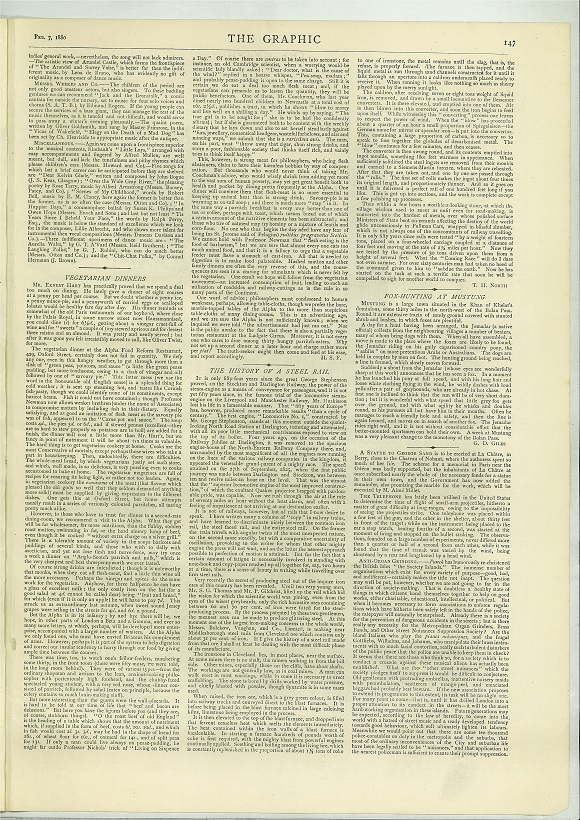


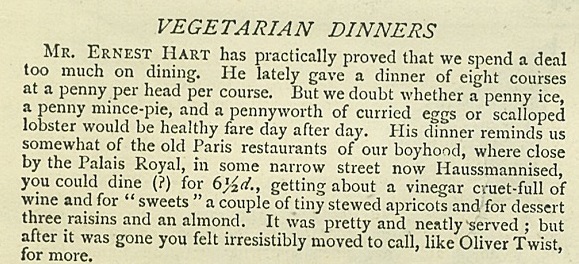
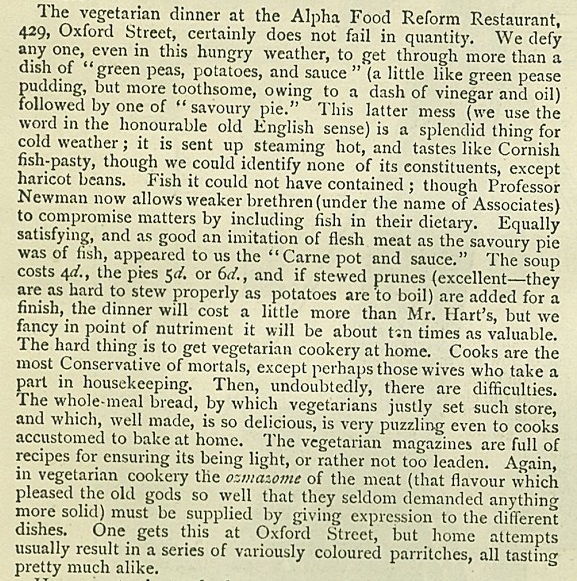




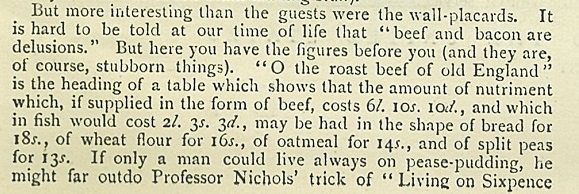
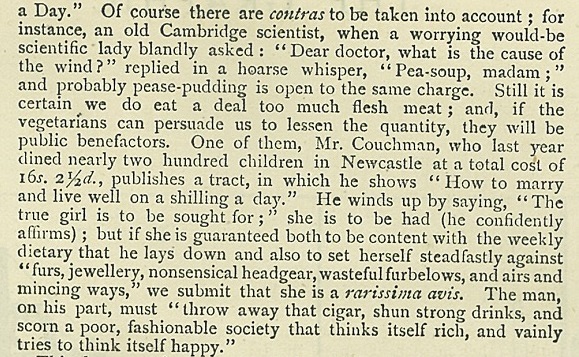
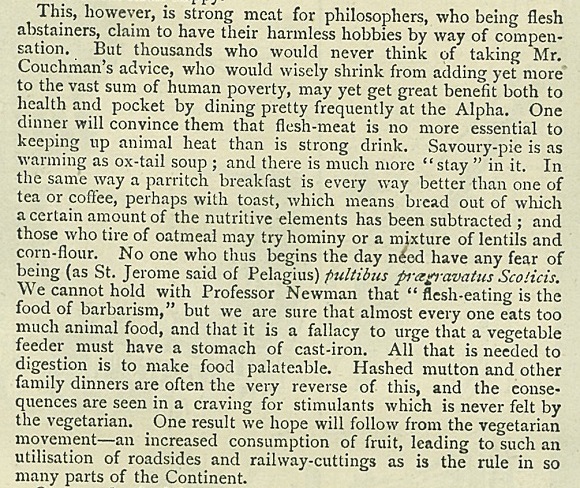
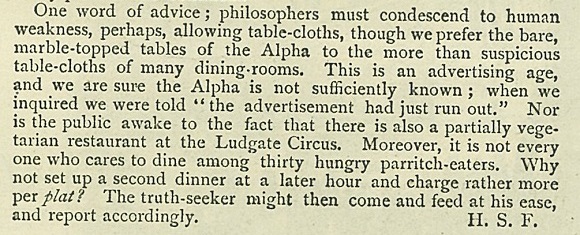
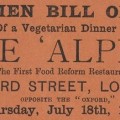
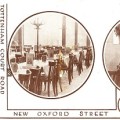
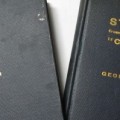

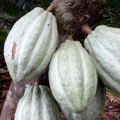
No Comments